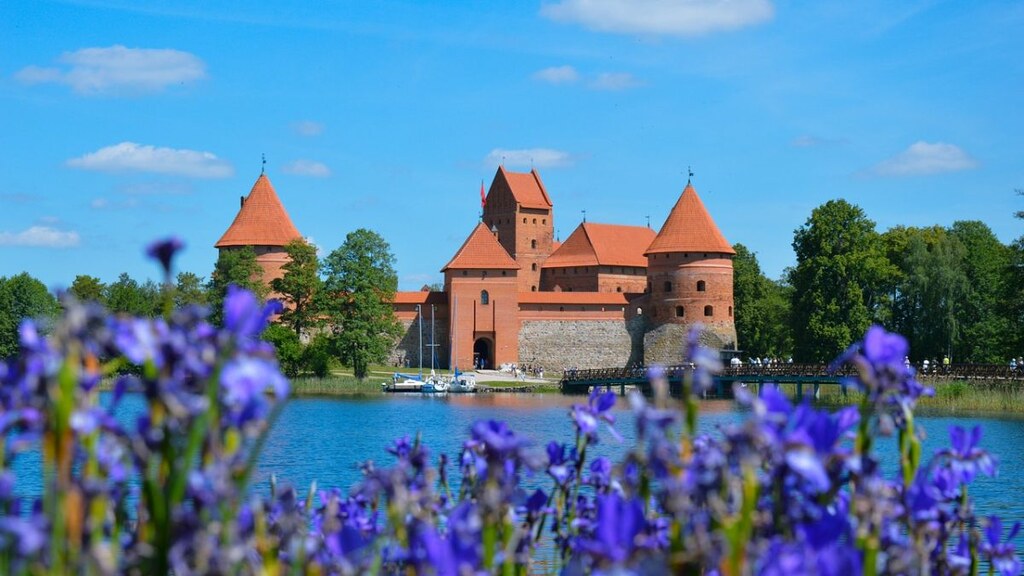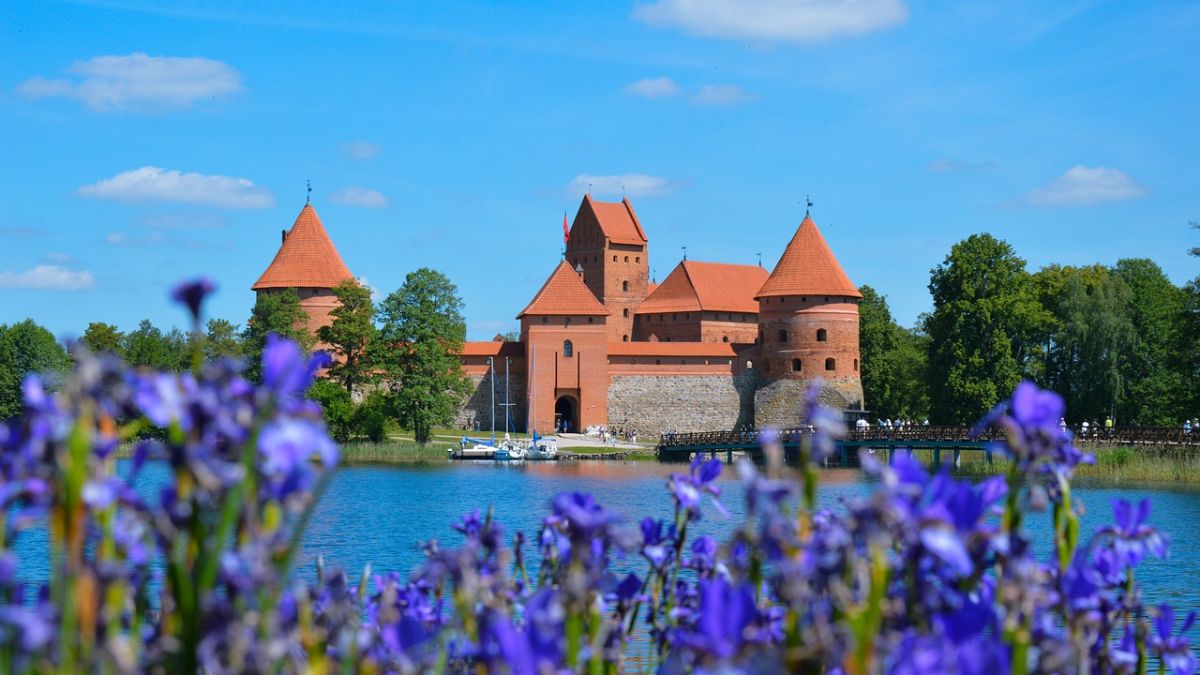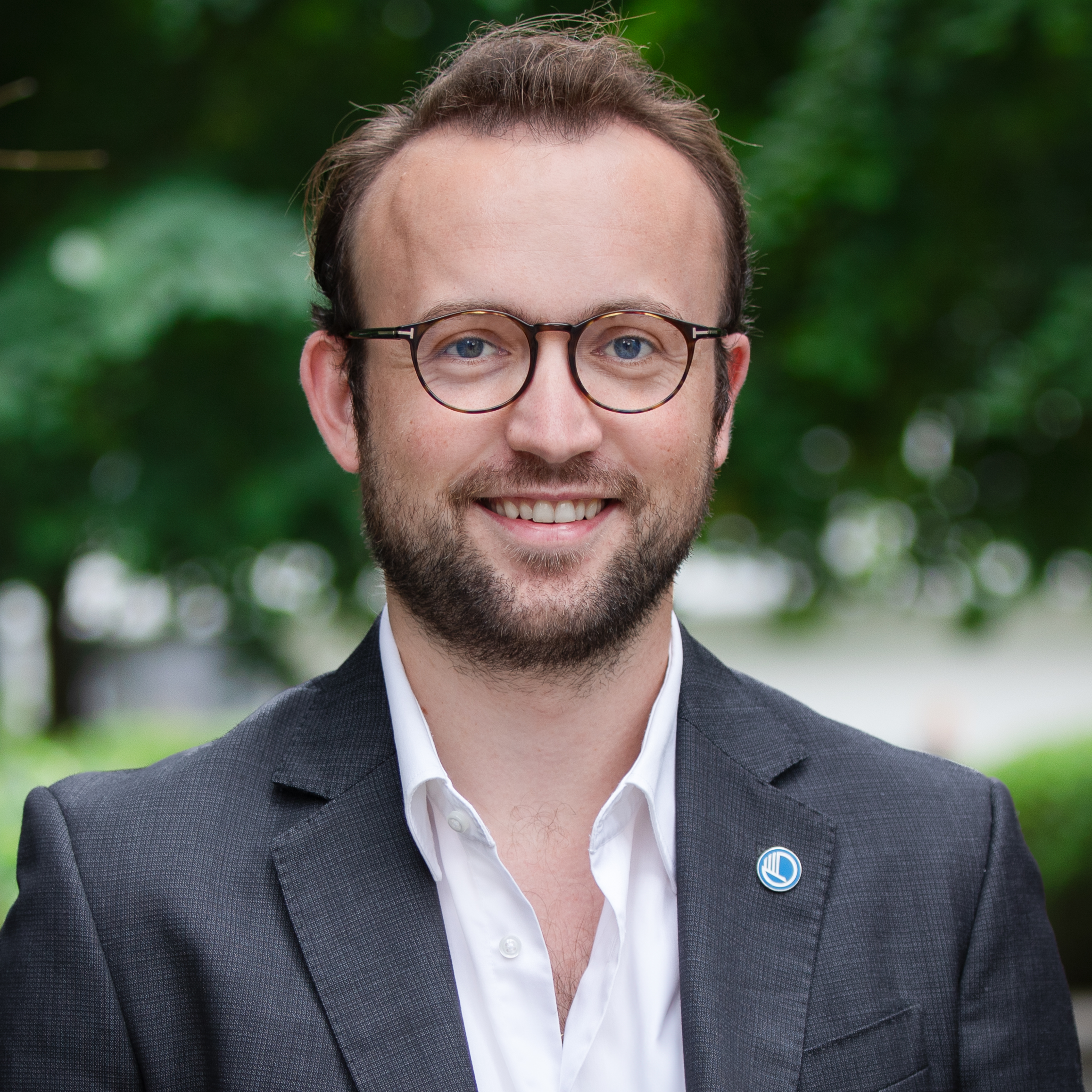
Three new projects funded in the Joint Baltic-Nordic Energy Research Programme
When the latest call within the Joint Baltic-Nordic Energy Research Programme closed in April 2024, a record-breaking 21 qualified proposals had been submitted. Now, three research projects have been selected…
When the latest call within the Joint Baltic-Nordic Energy Research Programme closed in April 2024, a record-breaking 21 qualified proposals had been submitted. Now, three research projects have been selected for funding: In-Charge, AMPROSE, and E-Pla2Meth. The projects focus on green ammonia use, battery technology and waste conversion to methanol.

Inverted Charge Crystals for New High-performance Solid State Electrolytes (In-Charge)
Project manager: Saulius Gražulis, Head of KICIS/Dr., Vilnius University
Project partners: Vilnius University and Technical University of Denmark
Rapidly developing technologies like mobile phones, electric cars, and drones have the potential to contribute to the well-being of our countries, increase European security, and eventually replace fossil fuels if we could store energy for long enough in high-capacity batteries charged from renewable sources. The capacity of current batteries, however, is way below the threshold required for complete replacement of oil products (fossil fuels) as energy stores; indeed, the energy density of the best batteries today is 260 Wh/kg = 0.93 MJ/kg (Flux Power 2020), whereas diesel fuel has 43.2 MJ/kg (Engineering ToolBox 2008).
Most of the batteries we use today are based on non-sustainable and hazardous materials, such as cobalt and lithium. Currently, we can’t make better batteries because our understanding of the properties of the interfaces between the battery components (electrodes and electrolytes) is lacking (Atkins 2021). In-Charge therefore proposes to apply the High Throughput Computation approach to create a catalogue of material interfaces relevant to batteries (Denmark part), elaborate a comprehensive data (Lithuanian part) model to describe those interfaces and make them searchable, and offer these results as a FAIR (Wilkinson 2016) dataset for easier investigation and further experimental testing of these materials in order to find better materials for high-capacity, high-power batteries.
Prospects for Green Ammonia in Sustainable Energy Development (Amprose)
Project manager: Giedrius Laukaitis, Professor, Kaunas University of Technology
Project partners: Kaunas University of Technology, SINTEF AS, AB Achema, Yara International ASA
The AMPROSE project seeks to explore the potential of ammonia as a clean energy innovation. Industrially produced ammonia (NH3) is vital for global agriculture, supporting 40–60% of food production as a key fertilizer component. Its significance as a raw material for the fertilizer industry and its potential as an energy carrier for maritime transport underscore its strategic importance.
The project will investigate the viability of integrating renewable energy (wind, solar, etc.) into the ammonia economy for the Baltic-Nordic region. The techno-economic analysis will assess the feasibility of green NH3 production, considering the dependence of NH3 price on green H2 costs. The project aims to undertake a thorough analysis of the energy landscape in the Nordic and Baltic regions, with a specific focus on the integration of renewable energy sources. The analysis will encompass the entire energy market ecosystem, including the generation, transmission, and consumption of energy, with a particular emphasis on the factors influencing the production and pricing of green ammonia.
The energy market modelling tool will aid in conducting a comprehensive cost-benefit analysis of green ammonia production under different scenarios to explore different future trajectories for the energy market. This includes different penetration levels of renewable energy, variations in energy demand, technological advancements, and changes in regulatory policies. Also, the project will demonstrate electrochemical ammonia production using affordable and primarily non-critical raw materials as an alternative to the energy-intensive traditional Haber-Bosch process.
The project aims to provide valuable insights and guidance for policymakers, energy market participants, and investors seeking to accelerate the transition towards a more sustainable and resilient energy system in the Nordic and Baltic regions.
Plastic waste conversion to methanol through water vapor plasma gasification and advanced catalytic synthesis (E-Pla2Meth)
Project manager: Rolandas Paulauskas, Chief researcher, Lithuanian Energy Institute
Project partners: Institute for Energy Technology, Lithuanian Energy Institute, Feenix Resource Recovery AS
The increasing consumerism leads to rising amounts of plastic waste, and it is estimated that 6.3 billion tons of this waste were generated globally up to 2018. Plastic waste is a high concern in the Nordic and Baltic states, as 70% of waste found in the Baltic Sea is plastic. For this reason, a lot of efforts are made to catch trash from the water and utilize it in a waste-to-energy pathway through incineration. However, increasing amounts of plastic waste for incineration lead to higher emissions of CO2. Considering the Green Deal and Nordic Vision 2030 targets, this project will demonstrate the concept of two intensified processes for the conversion of plastic wastes into methanol via water vapor plasma-assisted gasification and sorption-enhanced methanol synthesis (Plasma-Gasification-SEM).
The aim of the project is to efficiently convert plastic waste to green methanol. The efficient conversion of plastic waste to methanol requires extensive knowledge of material sciences, thermochemical processes, and process intensification. To build-up this knowledge in the partner countries, detailed scientific work involving experimental studies of investigation of the plasma-assisted gasification application on plastic (LDPE/HDPE/mix) conversion to syngas using different gasifying agents (water vapor, water vapor/CO2) and determination of optimal parameters for achieving the highest H2/CO ratio; and d evelopment of the catalyst and sorbent material for Sorption-Enhanced Methanol Synthesis (SEMS) with high CO2 hydrogenation activity, high water adsorption capacity and showing stability over 20 multiple synthesis-regeneration cycles, suitable for raw syngas.
More information about the call
- Funded by Nordic Energy Research and the Ministry of Energy of the Republic of Lithuania
- The call aimed to fund projects focused on key clean energy technologies, where both the Baltics and the Nordics will have the most to gain from collaboration. (higlighted in the report “Baltic-Nordic Roadmap for Co-operation on Clean Energy Technologies”)
- In total, 21 qualified proposals were submitted, of which 18 were led by Lithuanian institutions
- In June 2024, three research projects were selected for funding

